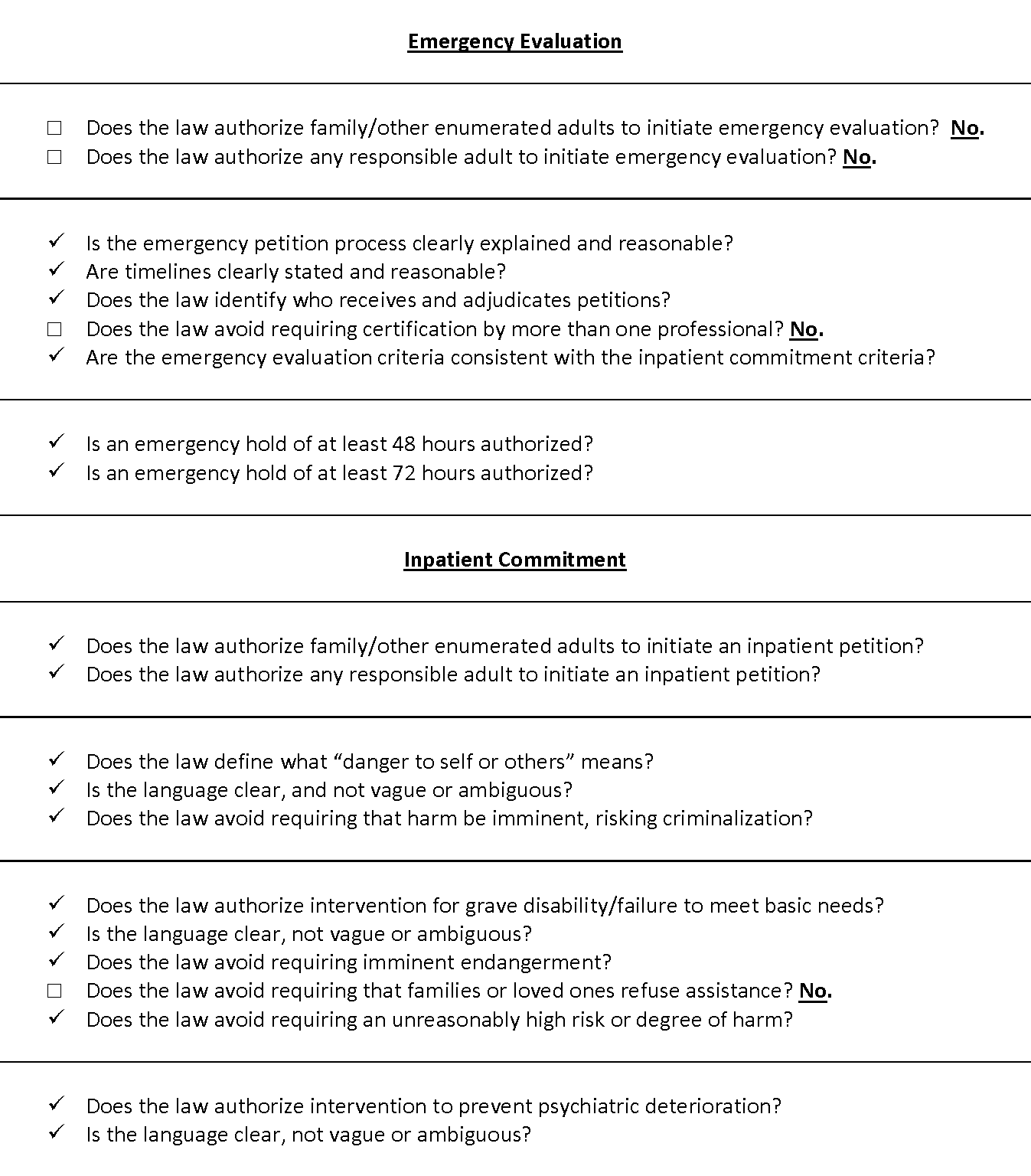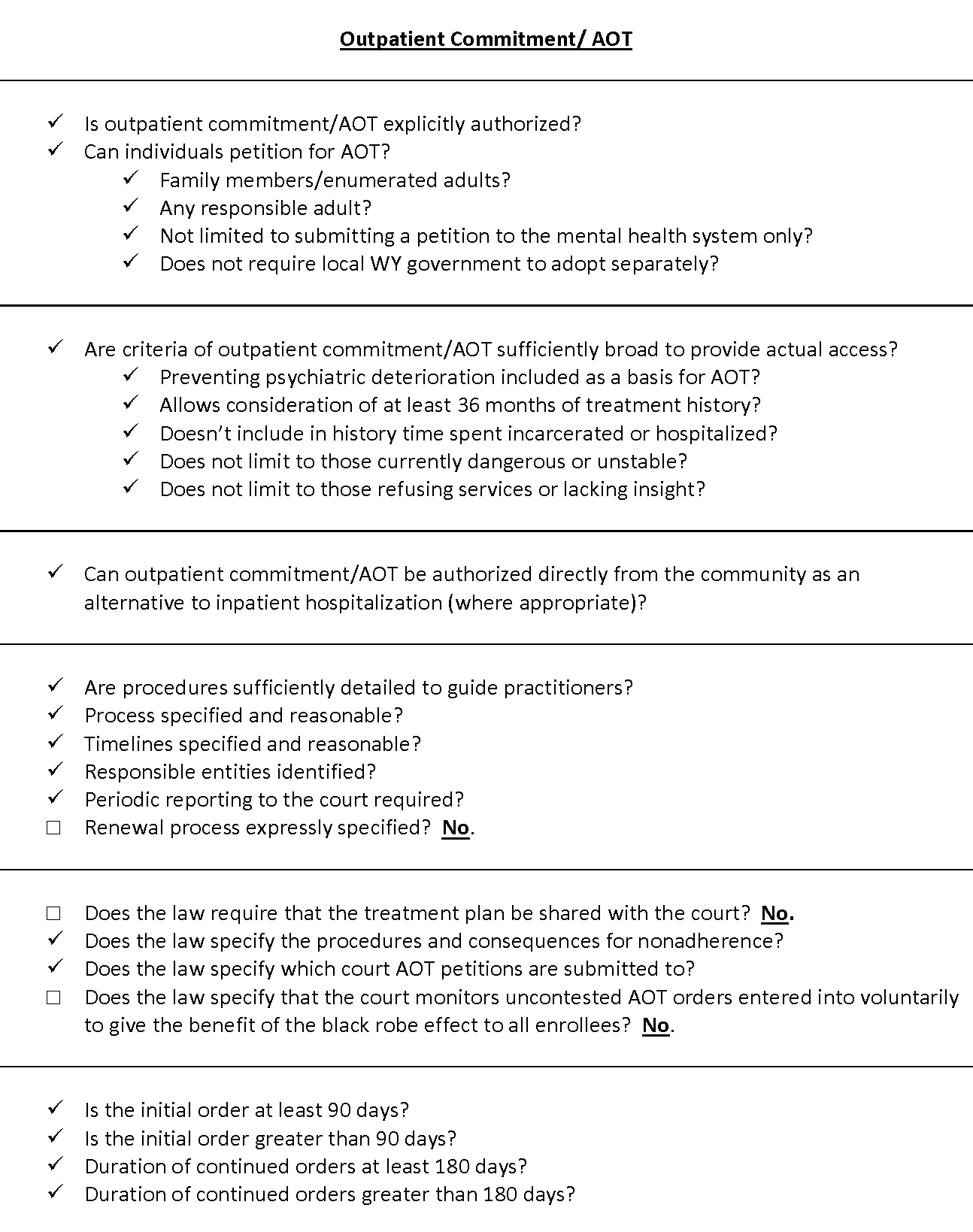Family Resources in Resources in Idaho
- Idaho Department of Health and Welfare (healthandwelfare.idaho.gov) Resources and contact
- Guardianships and Conservatorships (isc.idaho.gov) Online training opportunity
- Mental Health Resources in Idaho (rtor.org) Nonprofit provides an online form for personalized assistance from a resource specialist
- NAMI Idaho (namiidaho.org) Support groups, training, information
- Disability Rights Idaho (disabilityrightsidaho.org) Protection and advocacy for individuals with disabilities
- Homeless Information: Idaho | U.S. Department of Housing and Urban Development (hud.gov/states/idaho) Find help hotlines, financial assistance, foodbanks and shelters by region
- Idaho Inmate Search (idoc.idaho.gov) Find inmate by name or IDOC number
- Idaho State Bar (idaho.gov) Legal assistance
How many people in Idaho have SMI?
individuals with severe mental illness.
individuals with SMI who receive treatment in a given year.
of the adult population is estimated living with a SMI in the United States.
State psychiatric hospital beds in Idaho
2023 total beds: 170
- Civil beds: 98
- Forensic beds: 72
2023 beds per 100,000 people: 8.8
Click here for more information about state psychiatric hospital beds in Idaho.
A minimum of 50 beds per 100,000 people is considered necessary to provide minimally adequate treatment for individuals with severe mental illness. Idaho fails to meet this minimum standard.
For Additional Information
Data is a powerful tool to advocate for change. Curious about a specific data point in your state? Reach out to us at ORPA@treatmentadvocacycenter.org
Fast Facts on SMI in Idaho
Deinstitutionalization, outdated treatment laws, discriminatory Medicaid funding practices, and the prolonged failure by states to fund their mental health systems drive those in need of care into the criminal justice and corrections systems.
19%
2,706
170
16 to 1
2021 Idaho State Mental Health Agency's expenditures
Every state receives block grant funding from the federal government to provide mental health services to their community. Below is some information about how these dollars are spent and compares to other state spending.
$84,206,458
47%
$5,998
0.8%
Idaho's Treatment Laws
IDAHO CODE § 66-326 (1) No person shall be taken into custody or detained as an alleged emergency patient for observation, diagnosis, evaluation, care or treatment of mental illness unless and until the court has ordered such apprehension and custody under the provisions outlined in section 66-329, Idaho Code; provided, however, that a person may be taken into custody by a peace officer and placed in a facility, or the person may be detained at a hospital at which the person presented or was brought to receive medical or mental health care, if the peace officer or a physician medical staff member of such hospital or a physician’s assistant or advanced practice registered nurse practicing in such hospital has reason to believe that the person is gravely disabled due to mental illness or the person’s continued liberty poses an imminent danger to that person or others, as evidenced by a threat of substantial physical harm; provided, under no circumstances shall the proposed patient be detained in a nonmedical unit used for the detention of individuals charged with or convicted of penal offenses. For purposes of this section, the term “peace officer” shall include state probation and parole officers exercising their authority to supervise probationers and parolees. Whenever a person is taken into custody or detained under this section without court order, the evidence supporting the claim of grave disability due to mental illness or imminent danger must be presented to a duly authorized court within twenty-four (24) hours from the time the individual was placed in custody or detained. (2) If the court finds the individual to be gravely disabled due to mental illness or imminently dangerous under subsection (1) of this section, the court shall issue a temporary custody order requiring the person to be held in a facility, and requiring an examination of the person by a designated examiner within twenty-four (24) hours of the entry of the order of the court. Under no circumstances shall the proposed patient be detained in a nonmedical unit used for the detention of individuals charged with or convicted of penal offenses.
IDAHO CODE § 66-329(1). Proceedings for the involuntary care and treatment of mentally ill persons by the department of health and welfare may be commenced by the filing of a written application with a court of competent jurisdiction by a friend, relative, spouse or guardian of the proposed patient, or by a licensed physician, prosecuting attorney, or other public official of a municipality, county or of the state of Idaho, or the director of any facility in which such patient may be. IDAHO CODE § 66-329(11). If, upon completion of the hearing and consideration of the record, and after consideration of reasonable alternatives including, but not limited to, holding the proceedings in abeyance for a period of up to thirty (30) days, the court finds by clear and convincing evidence that the proposed patient: a. Is mentally ill; and b. Is, because of such condition, likely to injure himself or others, or is gravely disabled due to mental illness; the court shall order the proposed patient committed to the custody of the department director for observation, care, and treatment for an indeterminate period of time not to exceed one (1) year. The department director, through his dispositioner, shall determine within twenty-four (24) hours the least restrictive available facility or outpatient treatment, consistent with the needs of each patient committed under this section for observation, care, and treatment. IDAHO CODE § 66-317(11). "Mentally ill" means a person, who as a result of a substantial disorder of thought, mood, perception, orientation, or memory, which grossly impairs judgment, behavior, capacity to recognize and adapt to reality, requires care and treatment at a facility or through outpatient treatment. IDAHO CODE § 66-317(10). "Likely to injure himself or others" means: (a) A substantial risk that physical harm will be inflicted by the proposed patient upon his own person, as evidenced by threats or attempts to commit suicide or inflict physical harm on himself; or (b) A substantial risk that physical harm will be inflicted by the proposed patient upon another as evidenced by behavior that has caused such harm or that places another person or persons in reasonable fear of sustaining such harm; or (c) The proposed patient lacks insight into his need for treatment and is unable or unwilling to comply with treatment and, based on his psychiatric history, clinical observation or other clinical evidence, if he does not receive and comply with treatment, there is a substantial risk he will continue to physically, emotionally or mentally deteriorate to the point that he will, in the reasonably near future, inflict physical harm on himself or another person. IDAHO CODE § 66-317(12). "Gravely disabled" means the condition of a person who, as the result of mental illness, has demonstrated an inability to: (a) Attend to basic physical needs, such as medical care, food, clothing, shelter, or safety; (b) Protect himself from harm or victimization by others; (c) Exercise sufficient behavioral control to avoid serious criminal justice involvement; or (d) Recognize that he is experiencing symptoms of a serious mental illness and lacks the insight into his need for treatment, whereby the subsequent absence of treatment may result in deterioration of his condition such that any of the circumstances listed in this subsection may be satisfied in the near future. IDAHO CODE § 66-329(13). Nothing in this chapter or in any rule adopted pursuant thereto shall be construed to authorize the detention or involuntary admission to a hospital or other facility of an individual who: (a) Has a neurological disorder, a neurocognitive disorder, a developmental disability as defined in section 66-402, Idaho Code, a physical disability, or any medical disorder that includes psychiatric symptomology or is primarily impaired by substance use, unless in addition to such condition, such person is mentally ill; (b) Is a patient under treatment by spiritual means alone, through prayer, in accordance with the tenets and practices of a recognized church or religious denomination by a duly accredited practitioner thereof and who asserts to any authority attempting to detain him that he is under such treatment and who gives the name of a practitioner so treating him to such authority; or (c) Can be cared for privately with the help of willing and able family or friends in such a way as to no longer present substantial risk to himself or others, provided that such person may be detained or involuntarily admitted if such person is mentally ill and presents a substantial risk of injury to himself or others if such care is not adequate.

IDAHO CODE § 66-317(14). “Outpatient treatment” means mental health treatment, not involving the continuous supervision of a person in an inpatient setting, that is reasonably designed to alleviate or to reduce a person’s mental illness or to maintain or prevent deterioration of the person’s physical, mental, or emotional functioning. Mental health services or treatment may include, but need not be limited to, taking prescribed medication, reporting to a facility to permit monitoring of the person’s condition, or participating in individual or group therapy.

Recommended updates to treatment laws
- 1
Amend Idaho Code § 66-326(1) to authorize citizen right of petition for at least enumerated citizens, preferably any responsible adult, for emergency evaluation
- 2
Amend Idaho Code § 66-329(13)(b) to remove the right to receive “treatment by spiritual means alone” in lieu of necessary medical treatment
- 3
Amend Idaho Code § 66-329(13)(c) to clarify that private care by friends and family may not replace inpatient commitment unless such care is clinically equivalent to the physical and psychiatric care it is intended to replace
- 4
Amend Idaho Code § 66-326 to remove requirement for certification by two professionals for emergency evaluation
- 5
Amend Idaho Code § 66-337(1) to include a provision for renewal of order and a requirement that a written treatment plan be submitted to the court
- 6
Adopt express procedures for the court to monitor uncontested AOT orders entered into voluntarily to give the benefit of the black robe effect to all enrollees
